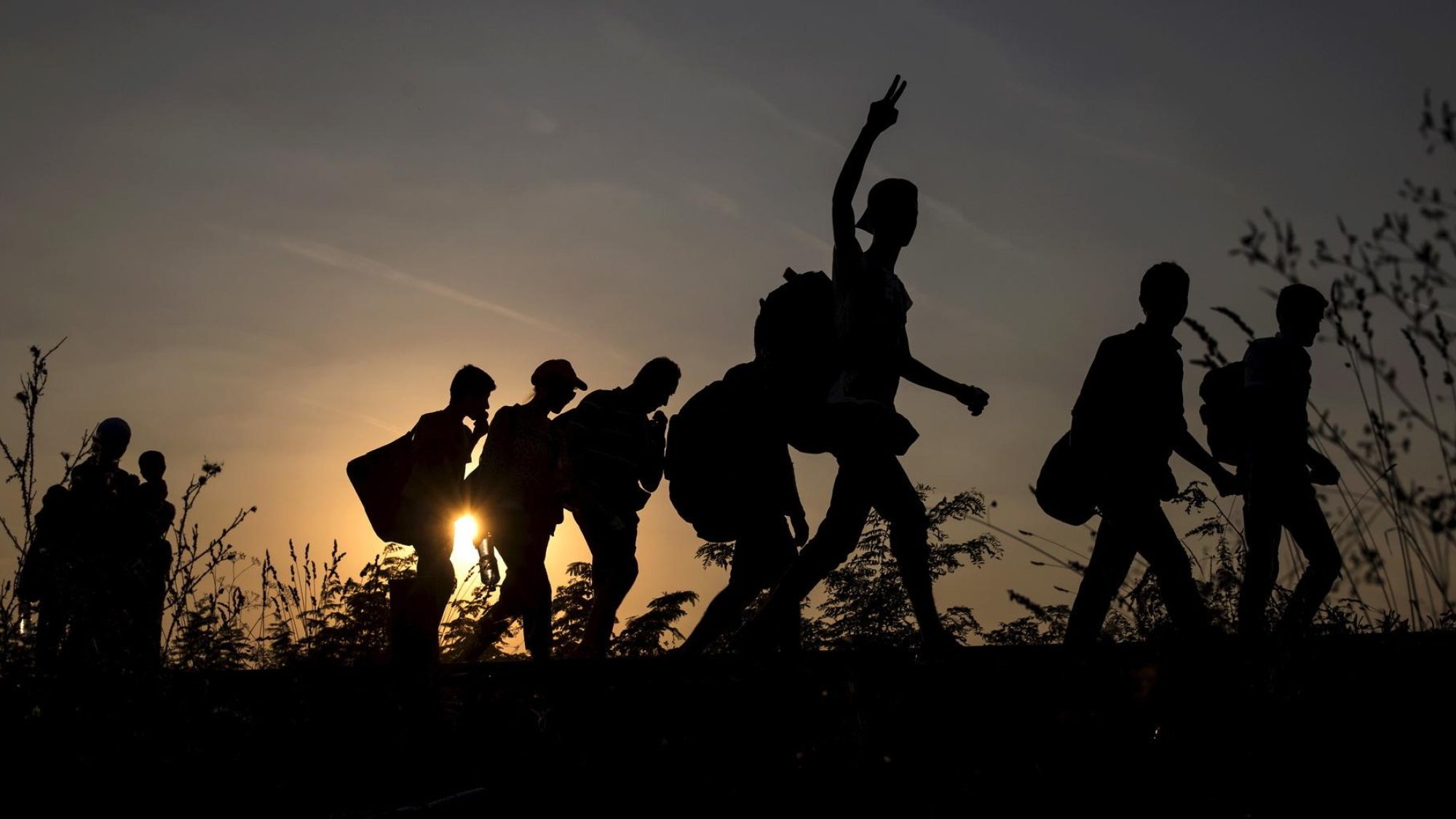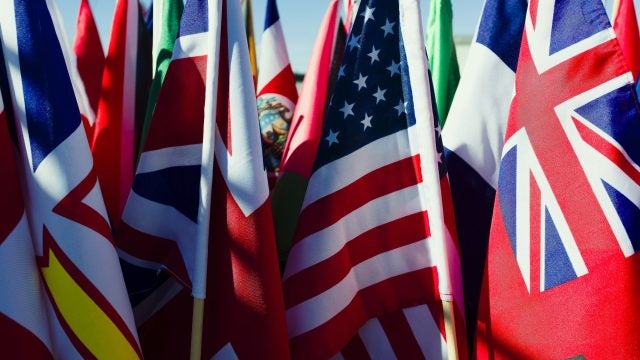
Title: Our European Way of Life? Challenges to Human Rights and Justice in the EU’s Migration Policy
Human rights are considered a foundational narrative of the European Union. The 2012 Nobel Peace Prize was awarded to the EU “for over six decades contributed to the advancement of peace and reconciliation, democracy and human rights in Europe.” Even though this foundational narrative has been considered problematic or even a political myth, the EU clearly continues to underline its role as a human rights actor in its internal and external policies. This discourse clashes, however, with practices of the EU and its member states, particularly in migration and refugee protection. This article focuses on the discrepancy between the European Union’s human rights commitments and their practical implementation in the area of refugee protection. It presents the most recent developments in EU law and policy and analyzes the impact of COVID-19 on the right to seek asylum. The article calls on the EU to treat its human rights obligations seriously by ensuring full functionality of territorial asylum in the EU, in particular by creating safe channels for applying for asylum and fair refugee status determination procedures, as well as by preventing violations of human rights by EU institutions.
In 2020, the EU entered the new decade with a deepening conflict about migration, in particular irregular migration and refugee protection, despite relatively low numbers of asylum applications. At the time of writing, the most recent available data from October 2021 showed about 65,000 asylum applications in the EU+ (the EU countries plus Norway and Switzerland). This increase compared to the same period in 2020 (about 43,000 applications), and also to the dip in applications during the most strict Covid restrictions in April 2020 (about 8,700 applications), has been affected in part by the developments in Afghanistan. The strict policies aiming to prevent asylum seekers from arriving in the EU adopted in the wake of the so-called refugee and migration crisis of 2015 have been maintained to prevent the arrival of racialised, non-white migrants. The crisis has also polarized the EU and undermined the development of the Common European Asylum System, as Poland, Hungary and Czech Republic have refused to participate in the refugee burden-sharing mechanisms, violating EU law.
Mirroring these developments, the new European Commission, elected in 2019, shifted the official migration discourse. One of the portfolios of the new College of Commissioners, named “Protecting our European way of life,” caused controversy both within and outside of EU institutions, and was later renamed to “Promoting our European way of life.” The portfolio (which encompasses a number of important and acute issues relating to labor markets, education, climate change, and the integration of migrants and refugees, as well as various aspects of security) is constructed and argued in a way that directly links irregular migration with threats to the security of the EU, and uses these threats to foster solidarity between member states.
Externalization of EU Policies on Migration and Refugee Protection
The main consequence of these developments is the unprecedented externalization of the EU’s migration policy in general, and border controls in particular, leading to human rights and rule of law violations because of governments’ policies on “pushbacks, hot returns, detention and expedited expulsions.” The EU response fits within the broader global externalization trend, where migrant receiving states in the Global North enact measures beyond their territorial borders to prevent access to their territories by migrants from the Global South.
One of the examples of these policies has been the widely criticized EU-Turkey deal of 2016. The goal of the deal was to end irregular migration from Turkey to the EU by returning to Turkey all new irregular migrants crossing from Turkey into the Greek islands, and resettling in their place Syrian asylum seekers. Priority was to be given to migrants who had not previously entered or tried to enter the EU irregularly, and focus was placed on preventing new sea or land routes for illegal migration opening from Turkey to the EU. The human rights violations that have taken place after the introduction of the deal, both in Greece and in Turkey, including in the aftermath of the failed coup in Turkey, as well as the recent Turkish offensive in Syria, have been documented by various organizations such as Amnesty International, the European Council on Refugees and Exiles, Doctors Without Borders. At the beginning of 2020 the deal in practice collapsed, as Turkey opened its border with Greece. The ensuing conflict at the border further disclosed the EU’s negligence of its human rights obligations, resulting in a violation of the right to seek asylum, as guaranteed in article 18 of the EU Charter of Fundamental Rights.
The EU’s commitment to human rights has been further questioned by the recent judgment of the European Court of Human Rights in the case of N.D. and N.T. v. Spain concerning asylum seekers crossing the external Schengen borders irregularly. The Court found that Spain’s pushbacks (informal cross-border expulsions) of migrants at the Spanish-Moroccan border were not unlawful, despite evidence of the practical impossibility to lawfully apply for refugee status for asylum seekers from sub-Saharan states. The EHCR in effect made access to protection and humane treatment conditional on the lawful behavior of applicants.
The closure of borders due to the COVID-19 pandemic, despite some notable exceptions, has further intensified the externalization approach of the EU and its member states to migration and refugee protection. Access to territory and to asylum procedures, already difficult prior to COVID-19, effectively ceased for asylum seekers, as many EU member states tightened border controls and limited access to asylum procedures in an attempt to control the spread of the pandemic. This effectively blocked access to protection in wealthy countries for those seeking asylum from the Global South. As a consequence, many asylum seekers and refugees are either stranded at sea, in overcrowded and inhumane refugee camps (resulting for instance in a fire at the Moria camp in Greece holding 12,000 refugees, despite its 3,000 person capacity), or without the means and possibility to apply for refugee status.
At the same time, more evidence has emerged from a joint investigation by Lighthouse Reports, Bellingcat, Der Spiegel, ARD and TV Asahi of violations of human rights of asylum seekers by the EU border agency Frontex. According to the Guardian, Frontex has been complicit directly and indirectly (by failing to rescue people from boats in distress and by failing to suppress and report human rights violations) in illegal pushbacks aimed at preventing asylum seekers crossing the Aegean Sea. In a follow-up investigation, the Frontex Scrutiny Working Group of the European Parliament’s LIBE Committee found evidence of fundamental rights violations by member states which Frontex failed to address or prevent and also found that Frontex failed to reduce the risk of future fundamental rights violations.
In addition to the deterrence measures introduced at the southern border of the EU, a humanitarian crisis has emerged at the EU’s eastern border (in Estonia, Lithuania, Latvia and Poland) in reactions to measures orchestrated by Belarussian authorities in the summer of 2021. Most notably Poland, according to a recent report of Grupa Granica, has abandoned its human rights obligations by introducing a state of emergency, restricting media freedom, and banning activists from entering the border area without exception for medical and humanitarian aid, leading to deaths and serious human rights violations including torture.
The New Pact on Migration and Asylum (a comprehensive package of the draft EU legislation on the Common European Asylum System) published in September 2020 by the European Commission takes the externalization even further. In particular, it emphasizes border procedures and effective expulsions contributing to the further securitization of migration. Even though the Pact introduces the provisions for setting up an independent monitoring mechanism to safeguard fundamental rights in cases of detention and expulsions, other provisions question the intention of the EU to improve the rights of migrants and asylum seekers. As Sergio Carrera contends, “Despite formalistic statements that these proposals generally comply with fundamental rights, border procedures are characterized by reduced procedural safeguards leading to arbitrariness and discrimination.”
Similarly to the “Protecting European Way of Life” portfolio, the Pact treats collaboration in the field of migration and asylum as a source of solidarity only between member states and not towards individuals, including undocumented migrants and applicants for international protection. It also remains to be seen how approaches to refugees and asylum seekers will evolve as the COVID-19 pandemic fully recedes. At the present moment, as a result of restrictive measures in force, the effective right to seek asylum in EU member states is severely limited. Fears persist that EU member states will not roll back COVID-specific migration controls as the impact of the pandemic lessens, and that the presently restricted environment will see the end of territorial asylum in Europe. Indeed, the recent response to the outbreak of the Omicron variant in Southern Africa, which led to many EU countries banning entry from southern African countries in December 2021, shows an ongoing willingness to implement restrictive measures against those traveling from the Global South.
Human rights, justice, and ‘our European way of life’?
All of these developments are very much at odds with the EU’s own claims about human rights and justice, values that form the fundamentals of the European project. Interestingly, despite these developments, human rights continues to feature prominently in the EU’s activities and policy documents. For instance, the Commission’s Work Program 2020: A Union that Strives for More, underlines “the EU’s leading role in setting standards on human rights and upholding International Humanitarian Law.” This gap between the human rights discourse and the concrete activities within its internal and external policies challenges the coherence of the EU’s actions, prompting accusations of ambiguity and hypocrisy. Such a discrepancy affects the position of the EU abroad, diminishes the role of human rights, and strengthens non-democratic tendencies both in the EU and in third countries.
As Thomas Spijkerboer underlines in his recent article, such EU Policies are clearly at odds with “our European way of life” as has been enshrined in the EU Treaties, referring to “the cultural, religious and humanist traditions of Europe, which underpin the development of the universal values of inviolable and inalienable human rights and of freedom, democracy, equality and the rule of law.” The EU should start treating these obligations seriously in practice, and implement them in its migration and refugee policies.
In concrete terms, the EU should make Article 18 of the EU Charter of Fundamental Rights effective by creating safe channels for applying for asylum at the EU’s borders and by preventing violation of human rights by EU institutions, including through reform of Frontex. Resources should be channeled from border control to reception and legal protection, as well as equipping migration offices, employing and training enough migration officers, prioritizing the right to legal assistance, and providing psychosocial assistance. Overall, a shift in orientation from entry prevention to reception and fair refugee status determination procedures (including in situations orchestrated by other countries) is necessary to better facilitate an approach to migration that is grounded in fundamental rights and solidarity towards asylum seekers and migrants. Finally, exceptional measures restricting migration introduced during the COVID-19 pandemic should not become the norm, and should be rolled back as soon as is appropriate to ensure the full functionality of territorial asylum. Ongoing signs of a preference for exclusion, exacerbated but not solely driven by the COVID-19 pandemic, present a series of challenges for international law and the institution of asylum. Nevertheless, as the recent increase in asylum applications in EU countries shows, pandemic-related restrictions and other barriers to movement are not a sufficient deterrent for those seeking protection from persecution and conflict.
…
Magdalena Kmak is a Professor of Public International Law, with a specialization in Migration and Minority Research, at Åbo Akademi University, and is a team leader in the Subproject: Migration and the narrative of Europe as an “Area of freedom, security and justice” at the Centre of Excellence in Law, Identity and the European Narratives at the University of Helsinki. Her research interests encompass migration and mobility studies, exile studies and history of migration, public international law, human rights, and international and European refugee law.
Stephen Phillips is a doctoral candidate in public international law at the Institute for Human Rights at Åbo Akademi University. His doctoral work concerns state responses to forced migration, in particular the manner in which states prevent access to asylum. He has also published work on transfer of asylum seeker policies between states, immigration detention, the rights of child migrants, and vulnerability and migration.
Image Credit: Marko Djurica, CC
More News

This article compares U.S. and Chinese approaches to artificial intelligence (AI) exports in Africa and examines how these disparate approaches have produced both downstream benefits and challenges for the region.

On May 20, 2025, the World Health Assembly unanimously adopted the World Health Organization (WHO) Pandemic Agreement, an international treaty designed to strengthen pandemic prevention, preparedness, and…

As the Trump administration proposes a sweeping overhaul of the US foreign assistance architecture by dismantling USAID, the Millennium Challenge Corporation (MCC), and restructuring the State Department, there is an…